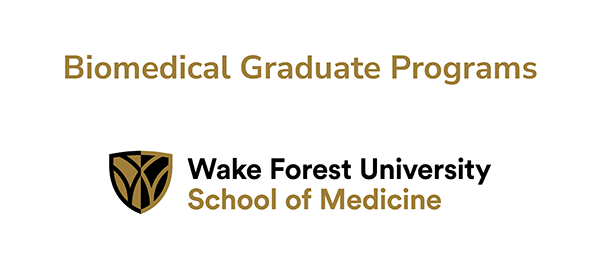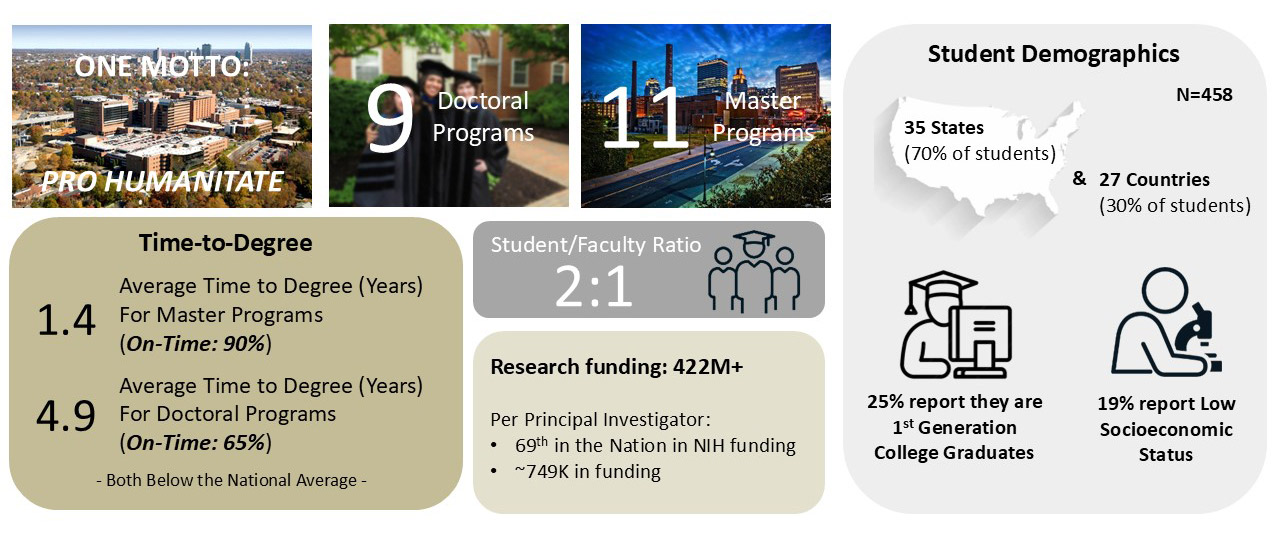 The Biomedical Graduate Program Office is focused on administering all biomedical graduate programs located on the Wake Forest University School of Medicine campus. Those exploring undertaking an advanced degree pursuit at Wake Forest can quickly review details about our programs in our infographic, see some recent news about our graduate students, or navigate to.
The Biomedical Graduate Program Office is focused on administering all biomedical graduate programs located on the Wake Forest University School of Medicine campus. Those exploring undertaking an advanced degree pursuit at Wake Forest can quickly review details about our programs in our infographic, see some recent news about our graduate students, or navigate to.
- Essentials about the Biomedical Graduate Program’s Administrative Office at the school of medicine and the support and life you can expect as a student on our campus
- Deeper information on one or more of biomedical graduate programs
- Details on our applying to our biomedical graduate programs, including program-by-program application requirements and deadlines
- Resources on the exciting training programs, academic departments, institutes, centers, and research laboratories available on the school of medicine campus
We host virtual information sessions on a regular basis, typically every other week, to allow you to learn more about our programs. Complete our Request More Information Form to learn more about upcoming sessions or to speak with us directly.
Quick Facts



















